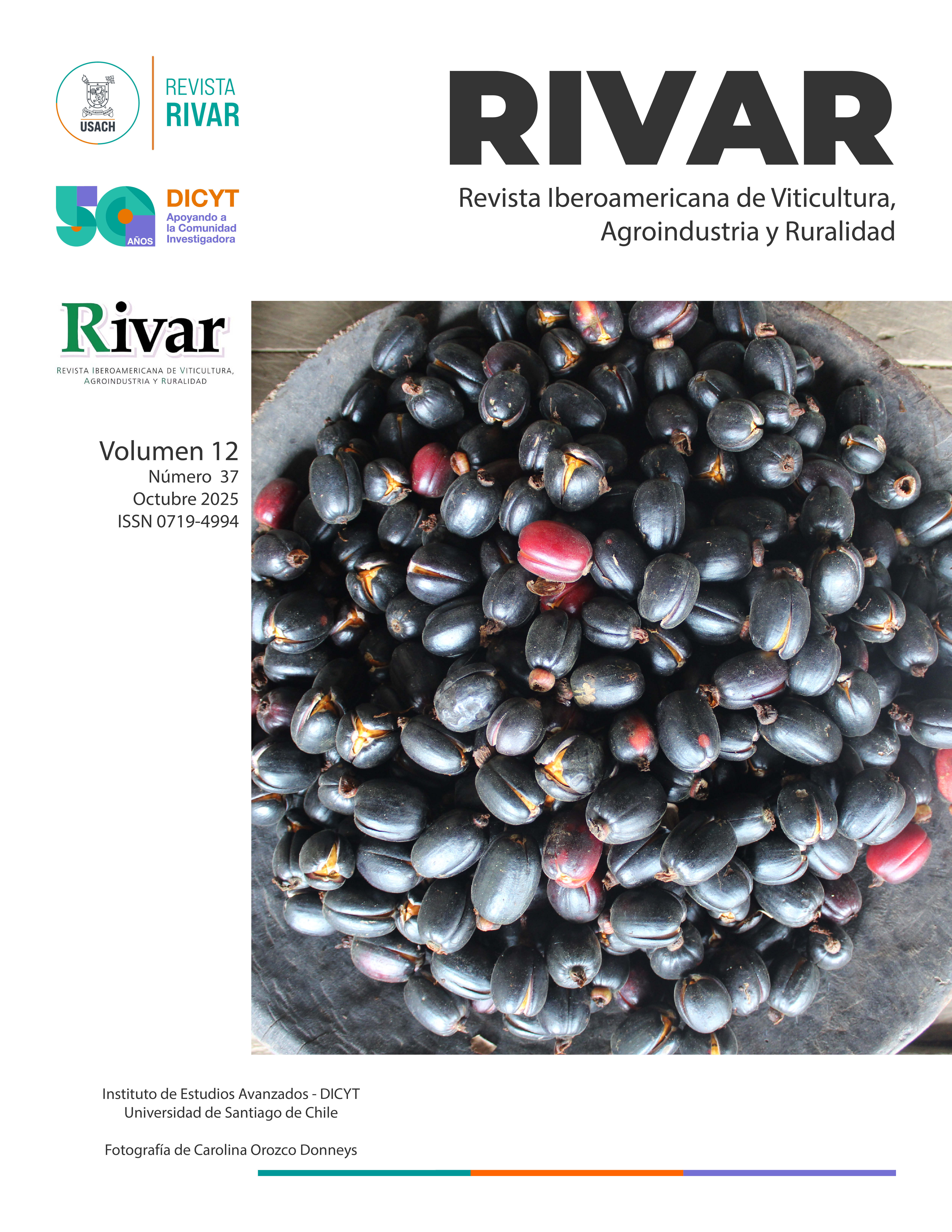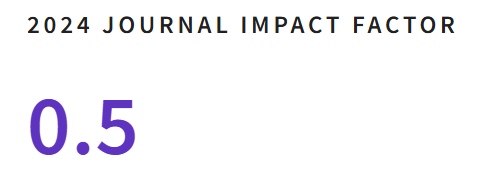“New” Conflict Identified? The Wild Boar in Agricultural Establishments in Northeastern Patagonia in Argentina
DOI:
https://doi.org/10.35588/rrjdek88Keywords:
Agrarian economy, hunting, wild animalAbstract
The wild boar is an invasive exotic mammal that impacts natural ecosystems and productive systems, although its effects on the latter have been little studied. In Argentina it is widely distributed and lacks natural predators, making hunting one of the main control strategies. This study was conducted in the semi-arid monte region, in northeastern Patagonia. The objective was to describe the impacts of wild boar and the control measures implemented in productive systems through semi-structured surveys conducted with livestock producers. The results highlight a direct impact, lamb predation and an indirect impact, illegal and informal hunting activities that affect producers. The main control measures identified include trapping, hunting with dogs, and night hunting with firearms and spotlights. This study provides key insights into the issue in the region and the role of producers in implementing control strategies.
Downloads
References
Amador-Alcalá, S., Naranjo, E.J. y Jiménez-Ferrer, G. (2013). Wildlife predation on livestock and poultry: Implications for predator conservation in the rainforest of south-east Mexico. Oryx, 47(2), 243-250. https://doi.org/10.1017/s0030605311001359
Anderson, A., Slootmaker, C., Harper, E., Holderieath, J. y Shwiff. S.A. (2016). Economic estimates of feral swine damage and control in 11 us states. Crop Protection, 89, 89-94. https://doi.org/10.1016/j.cropro.2016.06.023
Araos, A., Cerda, C., Skewes, O., Cruz, G., Tapia, P., y Baeriswyl, F. (2020). Estimated economic impacts of seven invasive alien species in Chile. Human Dimensions of Wildlife, 25(4), 1-6. https://doi.org/10.1080/10871209.2020.1740837
Barrios-García, M.N. y Ballari, S.A. (2012). Impact of wild boar (Sus scrofa) in its introduced and native range: A review. Biological Invasions, 14, 2283-2300. https://doi.org/10.1007/s10530-012-0229-6
Caley, P. y Ottley, B. (1995). The effectiveness of hunting dogs for removing feral pigs (Sus scrofa). Wildlife Research, 22(2), 147-154. https://doi.org/10.1071/WR9950147
Carpinetti, B.N., y Merino, M.L. (2023). Jabalíes y cerdos cimarrones en la argentina: Una guía de manejo para productores rurales. Editorial UNAJ.
Castillo, M., Gómez, M.B. y Cerutti, D.A. (2020). Evaluación en ovejas de la condición corporal con respecto a su estado fisiológico en el norte de la pampa. Ciencia Veterinaria, 22(1), 23-30. https://doi.org/10.19137/cienvet-202022102
Choquenot, D., Lukins B. y Curran, G. (1997). Assessing lamb predation by feral pigs in Australia’s semi-arid rangelands. Journal of Applied Ecology, 34(6), 1445-1454. https://doi.org/10.2307/2405260
Cuevas, M.F., Novillo, A., Campos, C., Dacar, M.A. y Ojeda, R.A. (2010). Food habits and impact of rooting behaviour of the invasive wild boar, Sus scrofa, in a protected area of the monte desert, Argentina. Journal of Arid Environments, 74(11), 1582-1585. https://doi.org/10.1016/j.jaridenv.2010.05.002
Gaskamp, J.A., Gee, K.L., Campbell, T.A., Silvy, N.J. y Webb, S.L. (2021). Effectiveness and efficiency of corral traps, drop nets and suspended traps for capturing wild pigs (Sus scrofa). Animals, 11(6), 1565. https://doi.org/10.3390/ani11061565
IUCN (2020). IUCN SSC Position Statement on the Management of Human-Wildlife Conflict. International Union for Conservation of Nature and Natural Resources. www.iucn.org/theme/species/publications/policies-and-position-statements
Jaebker, L.M. et al. (2023). Texas hunters’ attitudes toward wild pigs (Sus scrofa) and their management: an applied approach for wildlife managers. Wildlife Society Bulletin, 47(3), e1472. https://doi.org/10.1002/wsb.1472
Kramer, C.J., Boudreau, M.R., Miller, R.S., Powers, R., Vercauteren, K.C. y Brook, R.K. (2022). Summer habitat use and movements of invasive wild pigs (Sus scrofa) in Canadian agro-ecosystems. Canadian Journal of Zoology, 100(8), 494-506. https://doi.org/10.1139/cjz-2021-0116
La Sala, L.F. et al. (2023). Wild pigs and their widespread threat to biodiversity conservation in South America. Journal for Nature Conservation, 73, 126393. https://doi.org/10.1016/j.jnc.2023.126393
Marcos, A., Carpinetti, B., Ferro, N., Aronowicz, T. y Dassa, L. (2020). Percepción del impacto de cerdos cimarrones (jabalíes) sobre la producción agropecuaria de Argentina. Revista Veterinaria, 31(2), 131-136. https://doi.org/10.30972/vet.3124731
Matteucci, S.D. (2012). Ecorregión monte de llanuras y mesetas. Orientación Gráfica.
Ministerio de Ambiente y Desarrollo Sostenible (2022). Estrategia nacional sobre especies exóticas invasoras. Ministerio de ambiente y desarrollo sostenible de Argentina.
Popczyk, B. et al. (2022). Crop harvesting can affect habitat selection of wild boar (Sus scrofa). Sustainability, 14(22), 14679. https://doi.org/10.3390/su142214679
Puebla Fortunato, T.E. (2022). Percepción social de una especie exótica, el jabalí (Sus scrofa), en el noreste de la Patagonia argentina. Tesis de grado. Universidad Nacional de Río Negro.
Van de Water, A., King, L.E., Arkajak, R., Arkajak, J., van Doormaal, N., Ceccarelli, V., Sluiter, L., Doornwaard, S.M. Praet, V., Owen, D. y Matteson, K. (2020). Beehive fences as a sustainable local solution to human‐elephant conflict in Thailand. Conservation Science and Practice, 2(10), e260. https://doi.org/10.1111/csp2.260
Downloads
Submitted
2025-02-05Published
Issue
Section
License
Copyright (c) 2025 Leonel J Viladrich, Tobias Ezequiel Puebla Fortunato, Mariano Lisandro Merino, Diego Enrique Birochio

This work is licensed under a Creative Commons Attribution 4.0 International License.









